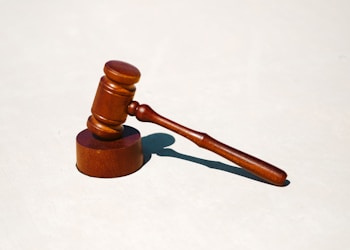Truck accidents can be more difficult to determine liability for than auto accidents. It can be a problem because if the accident is the fault of a truck driver and you were in an auto accident with them, you may not be able to get compensation for your injuries. In general, liability in truck accidents is determined by who is responsible for ensuring that the other driver is driving safely. If there are any questions about who was at fault or if it’s unclear, there will have to be a trial to determine which party should pay what percentage of damages to the injured party.
1. Varied Liability Rules
The liability laws for trucks vary from state to state and country to country. The regulations also change over time because lawmakers are constantly updating them based on what new information they get about how accidents happen. The rules are generally more open-ended than they are for cars. There is also no uniform company policy for at-fault trucking companies to follow. It’s possible that someone from a local trucking company was driving the wrong way on a one-way road when you were struck by their truck, and this could make it hard to determine liability for your injuries.
2. No Electronic Devices to Record Crashes
No electronic devices are designed to record accidents between trucks and cars that one can use to prove what happened. Without this, it’s more difficult to determine liability for truck accident victims. The law usually relies on the testimony of witnesses, the owners of the vehicles involved in the crash, and eyewitnesses. Therefore, the importance of evidence in a truck accident case is paramount, but you may not find enough evidence. So, it is best to hire a truck accident attorney to gather the evidence you need.
3. Complexities in the Chain of Events
In trucking accidents, many parties are involved in the chain of events that lead up to the collision, and they may all be at fault. Trucking companies contract with driver recruiters and managers, who give truckers jobs and find them places to stay when they’re on the road. These companies also have local dispatchers who manage their trucks’ routes, workers’ schedules, and difficulty levels. Drivers decide how hard to drive or how fast to go every day based on how much sleep they have and if their equipment is working correctly. It, combined with the fact that there are all kinds of cargo in the trucks, makes it extremely difficult to determine liability for truck accidents.
4. Bias on the Part of Witnesses
Some truck drivers considered liable for truck accidents are “outcasts” in many circles because of their size and shape, the materials they carry, and their multi-ton vehicles. It means that the driver considered a wrong person by trucking companies might not be regarded as a good witness by other witnesses who are much more sympathetic to their company. However, this could make it hard for you to prove that the trucking company is liable.
5. Poor Documentation of Crashes
There is poor documentation of truck accidents, and it’s tough to determine liability for truck accident victims. The court may not have records showing all the people who were in the crash and what they did before it occurred. Without this information, it’s hard to determine who was at fault.
6. Different Rules for Trucks
Most states will not allow drivers to collect damages against companies that provide trucks to their employees. It’s illegal for a company even to get involved with whether or not its drivers are at fault. A trucking company may be liable for truck accident injuries or property damage if one of its employees commits an accident. Still, there is no way for the injured party to collect compensation from the company.
Determining liability in a truck accident is challenging because of the various laws, multiple parties involved, and documentation issues. Having a truck accident attorney on your side makes it necessary to help you figure out who was at fault and also gather the evidence required to prove liability in your case.















